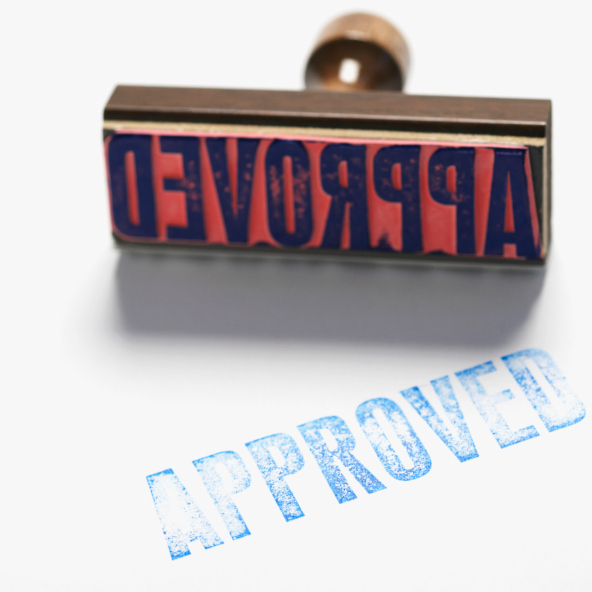 Making renovations that are energy efficient is not just a great way to reduce energy output, but it’s also an effective way of decreasing monthly utility costs. It serves as a one-time investment that will save money in the long run.
Making renovations that are energy efficient is not just a great way to reduce energy output, but it’s also an effective way of decreasing monthly utility costs. It serves as a one-time investment that will save money in the long run.
However, renovations are costly and not everybody has the extra finances required to make energy efficient changes. This is where the VA’s energy efficient mortgage (or EEM) program comes into play.
The program is designed to allow veterans to apply for a new mortgage or refinance an existing one with extra funds to renovate the home to be up to energy efficient standards.
The Three Tiers Under The VA’s Energy Efficient Mortgage Program
The VA has three tiers for the cost of renovations to be done under the EEM program. The lowest, and easiest to be accepted for, is for improvements that will total under $3,000. A list of costs or a contractor’s quote may be required in the application process.
The second tier is for renovations that will cost between $3,001 and $6,000. This will require the homeowner or homebuyer to get a Home Energy Rating System report to detail how efficient a home is currently and what can be done to decrease its HERS rating.
The final tier is for any improvements to the home that will cost over $6,000. This is the most difficult tier to receive acceptance for as both the Department of Veterans Affairs and the private lender will need to approve the renovations.
Types Of Improvements Under The EEM Program
The program covers a variety of renovations for the home. These include: new insulation to walls, floors and ceilings, solar powered heating and cooling systems, thermal doors, thermal windows and new caulking and weather stripping.
There are also items that will not be covered by the program, including new roofing, vinyl siding and air conditioning units.
Using The EEM Program To Receive A Larger Loan
Any veteran or currently active military member looking to buy a brand new home can still benefit greatly from the energy efficient mortgage program. If a new home undergoes a HERS report and passes as being energy efficient, this can be applied to a VA mortgage to receive as much as $6,000 extra on the loan.
Speak with your local mortgage professional to go into more detail on the intricacies of refinancing under the EEM program and whether or not your home will qualify.
 Credit is of considerable concern when it comes to buying a home, but if you’re on the market for a new place in the next few months there may be some timely news that applies to you. If you haven’t heard about the changes to the Federal Housing Administration’s (FHA) credit score minimum, here’s some information on the recent reduction and how it may impact your home purchase.
Credit is of considerable concern when it comes to buying a home, but if you’re on the market for a new place in the next few months there may be some timely news that applies to you. If you haven’t heard about the changes to the Federal Housing Administration’s (FHA) credit score minimum, here’s some information on the recent reduction and how it may impact your home purchase. A monthly mortgage can seem like enough of a financial responsibility on its own, but there are many factors involved in home ownership that affect its fiscal feasibility. If you’re in the market for a house and are wondering how your income will stack up against the rest of your expenses, here’s how to determine a home cost that’s reasonable for you.
A monthly mortgage can seem like enough of a financial responsibility on its own, but there are many factors involved in home ownership that affect its fiscal feasibility. If you’re in the market for a house and are wondering how your income will stack up against the rest of your expenses, here’s how to determine a home cost that’s reasonable for you. Many homeowners are struggling to keep up with their mortgage payments on a monthly basis, and it can often seem like there are limited options for remedying the situation. If you haven’t heard of HARP refinancing and you’re a homeowner who’s looking for a lower interest rate, this may be the right solution to your payment woes. Instead of letting the opportunity blow by, here’s all you need to know before this option ends in 2016.
Many homeowners are struggling to keep up with their mortgage payments on a monthly basis, and it can often seem like there are limited options for remedying the situation. If you haven’t heard of HARP refinancing and you’re a homeowner who’s looking for a lower interest rate, this may be the right solution to your payment woes. Instead of letting the opportunity blow by, here’s all you need to know before this option ends in 2016. Traditionally, getting a mortgage requires you to have a level of income appropriate to the size of home that you’re buying. But for a lot of low-income and minority borrowers, a simple measure of one person’s income isn’t an accurate measure of whether or not that person can afford a home.
Traditionally, getting a mortgage requires you to have a level of income appropriate to the size of home that you’re buying. But for a lot of low-income and minority borrowers, a simple measure of one person’s income isn’t an accurate measure of whether or not that person can afford a home. Buying a home isn’t cheap. But if you’re determined to become a homeowner, the FHA home loan program can help. This loan program, ideal for first-time buyers with low incomes, can help you to build your credit and make home ownership a reality.
Buying a home isn’t cheap. But if you’re determined to become a homeowner, the FHA home loan program can help. This loan program, ideal for first-time buyers with low incomes, can help you to build your credit and make home ownership a reality. If you’re in the market for a new home, you’ll most likely need a mortgage in order to afford it. But for some home buyers, getting a mortgage isn’t easy. Banks and other lenders are often hesitant to lend money to certain consumers, often for good reason.
If you’re in the market for a new home, you’ll most likely need a mortgage in order to afford it. But for some home buyers, getting a mortgage isn’t easy. Banks and other lenders are often hesitant to lend money to certain consumers, often for good reason. The mortgage process is a long and complicated one, with a number of similar-sounding terms that can easily confuse first-time homebuyers. A pre-approval is not the same thing as a pre-qualification, and it’s important to understand everything that goes into a pre-approval. Being declined during the pre-approval process means you’ll have a hard time getting the funds you need to buy your home, so it’s important that you know what the process is going to look like before going into it.
The mortgage process is a long and complicated one, with a number of similar-sounding terms that can easily confuse first-time homebuyers. A pre-approval is not the same thing as a pre-qualification, and it’s important to understand everything that goes into a pre-approval. Being declined during the pre-approval process means you’ll have a hard time getting the funds you need to buy your home, so it’s important that you know what the process is going to look like before going into it. If you’re about to seek approval for a mortgage, you’ll want to ensure you have a solid credit score and clean financial records to boost your likelihood of being approved. There are certain characteristics that lenders want to see in a mortgage applicant before they agree to give a loan, and you want to prove that you’re a responsible borrower. But certain behaviors can easily tank your application and crush your home ownership dreams.
If you’re about to seek approval for a mortgage, you’ll want to ensure you have a solid credit score and clean financial records to boost your likelihood of being approved. There are certain characteristics that lenders want to see in a mortgage applicant before they agree to give a loan, and you want to prove that you’re a responsible borrower. But certain behaviors can easily tank your application and crush your home ownership dreams. Mortgage closing costs have been coming down in recent years, which is good news for buyers. But if you’re buying a home in the near future, you’ll want to ensure you’re prepared to take full advantage of these lower fees – after all, keeping more money in your pocket is always good. When you close on your mortgage, take these three steps and you’ll find that you’ll pay far less in closing fees than most buyers would.
Mortgage closing costs have been coming down in recent years, which is good news for buyers. But if you’re buying a home in the near future, you’ll want to ensure you’re prepared to take full advantage of these lower fees – after all, keeping more money in your pocket is always good. When you close on your mortgage, take these three steps and you’ll find that you’ll pay far less in closing fees than most buyers would.